Social Justice in Higher Education Topic of Conference Panel
By Loukaia Taylor ŌĆÖ22
The second annual Inclusive Leadership Conference in April included a panel discussion with Dr. Donnetrice Allison, chair of the Africana Studies program, and Committee on Campus Diversity & Inclusive Excellence (CCDIE) members Dr. Guia Calicdan-Apostle & Dr. Esther Lawrence.
SETH RICHARDS (CCDIE member and panel moderator): What does social justice mean to you, personally? How does it inform your work here at Stockton?
DR. DONNETRICE ALLISON: It means everything to me. So, coming up as an undergrad at a very similar institution to 91╩ėŲĄ, we were always essentially protesting for what we needed, as there are certain underrepresented communities that donŌĆÖt often get what we need unless we make others think about it. I think that much of the progress made in this country is because people pushed for it, and so that is what social justice is all about ŌöĆ pushing for those things that we need, including all voices and making sure those things happen ŌöĆ and so much of that starts with college 91╩ėŲĄ. A lot of those things that have happened historically would not have happened without the insistence of young people saying, ŌĆśHey, wait, we noticed something that's necessary, and we want to make it happen.ŌĆÖ So, what do we do? We organize, and we push. You guys have more power than you realize, and it's so important that we up here help you to exercise that.
RICHARDS: Can you talk a little bit about policy and how we can ensure that diversity, equity and inclusion are prioritized in organizational policy and practice?
DR. ESTHER LAWRENCE: Policies are put in place for a reason, procedures, and so on, but you also have to have benchmarks and metrics when you're creating policies to make sure that you're able to assess that things are getting done and that everyone is felt to be included. You want to make sure that policies are being created so that things are happening equitably, meaning that everyone is going to be able to benefit from those policies. (Policy analysis) should happen within communities, just to make sure that everybody is staying consistent, fair and equitable.
RICHARDS: Can you talk about some strategies and some skills for dismantling what seem like systems that are really ensconced or codified in the places where we work and live?
DR. GUIA CALICDAN-APOSTLE: I think before we talk about strategies, we have to think about cognitive dissonance ŌĆō we have so much reality or unreality going on, like fake news, and weŌĆÖre becoming blinded by some of these things, right? So, for one of those strategies, I am assuming that we all have critical thinking skills and that we are able to think clearly: find resources and gain a balanced view of whatŌĆÖs going on before you speak. Other strategies: be strong, bold and prepared if youŌĆÖre going to be arguing on an issue. Capitalize on your resources like your faculty members ŌĆō they have individual narratives, they come from different places, and they have done great things.

RICHARDS: I have one final question that I'll ask the same of each of you: There are so many different causes, movements and important things that it, sometimes, can almost feel like they take energy from each other. Can you talk about how, for whatever individual movements and other things are happening, we can coalesce and foster a togetherness without taking away from any one of those different priorities or movements?
CALICDAN-APOSTLE: Well, I mean, when it comes to movements, we started with the Civil Rights Movement and Black Lives Matter, but if you look at the Asian perspective, we, too, have made a lot of contributions to this nation. But there are 40-45 countries in Asia, and when you see them, you see that they havenŌĆÖt really gotten together ŌĆō theyŌĆÖre in silos. Why is that? Because they react based just on what they see in the media: when someone is hurt, we rally, which is great, but there is no sustainability with that. That means we have to continue to build upon othersŌĆÖ organizations and share our experiences to make our organizations a more unified organization.
LAWRENCE: Basically, no matter what social justice initiative you're working toward, I want to say to just keep your foot on the gas. Don't give up, and don't give in. Don't take your foot off the gas because our ancestors didn't: there's always going to be some sort of people out there who want to keep us oppressed, and that's for a reason, so guess what? We are not going to give in. We're going to keep pushing. We're going to keep fighting, and we're going to keep hoping for justice.
ALLISON: I agree 100% that you know we can't take our foot off the gas because a lot of times when we get complacent, there are powers that be out there that try to start moving pieces around the board, so that's important. But I would also add to find that thing you're passionate about and focus on fighting for that thing, but at the same time, don't overwhelm yourself. I think that sometimes those of us who are really into social justice and all of that try to get too involved, and then we overwhelm ourselves over here doing this, and then we're doing that. HereŌĆÖs a quick and funny reflection: a friend of mine who I went to undergrad with posted some pictures on social media, and I realized that I wasn't in any of the party pictures ŌĆō I was only in the protest pictures. I was like, ŌĆśWell, dang, I guess I didn't party enough.ŌĆÖ
Students left the panel eager to see what else the conference had in store for them and reflected on the lessons theyŌĆÖll take with them from the panel discussion.
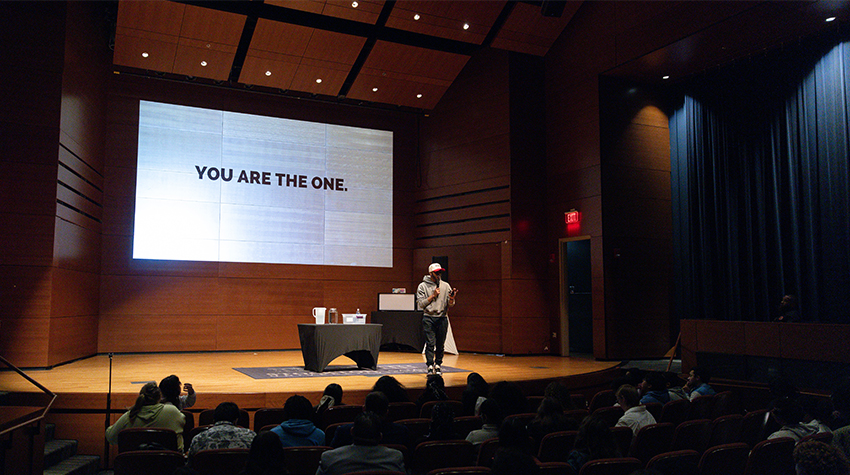
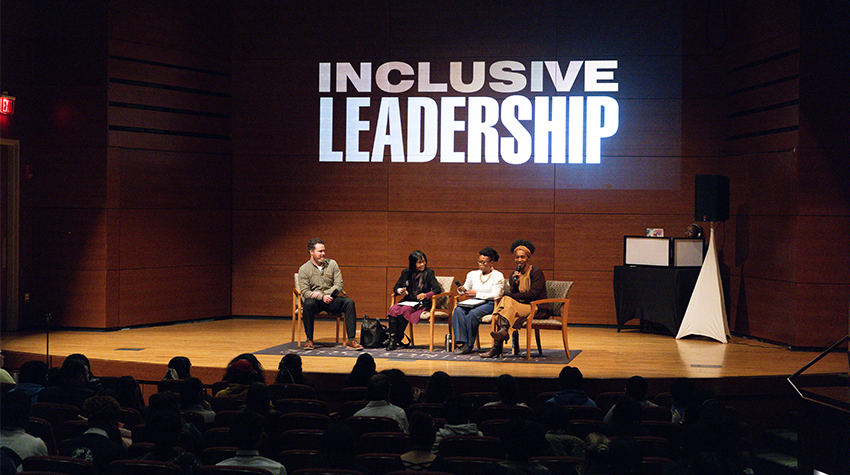
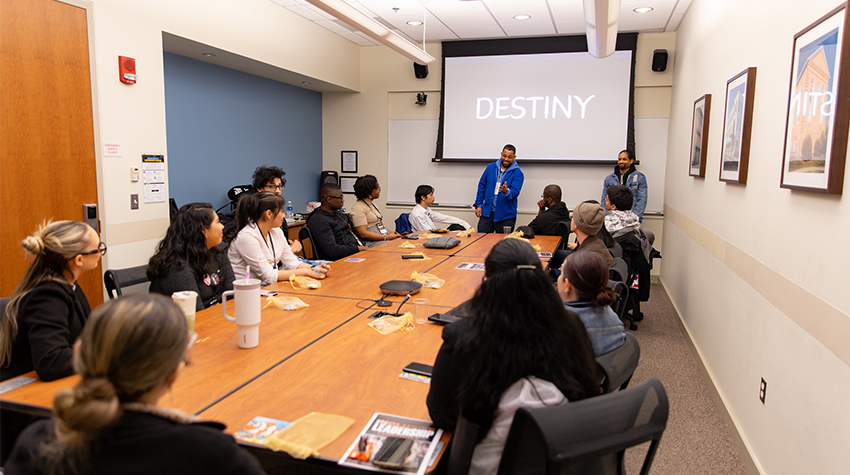
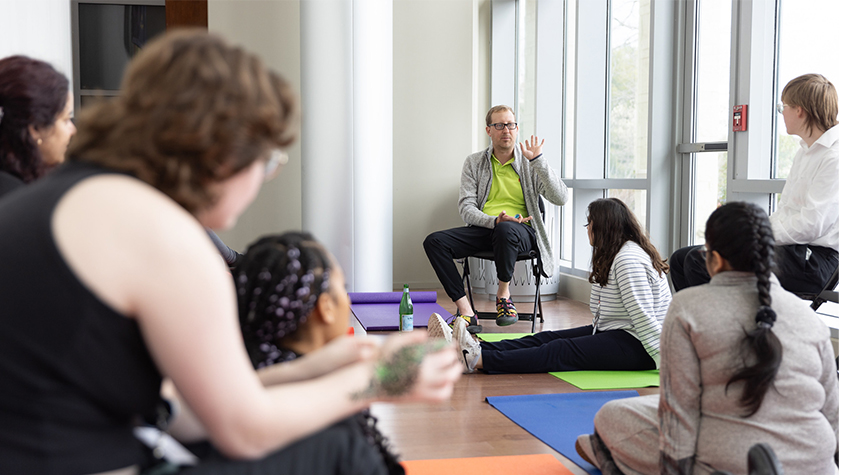
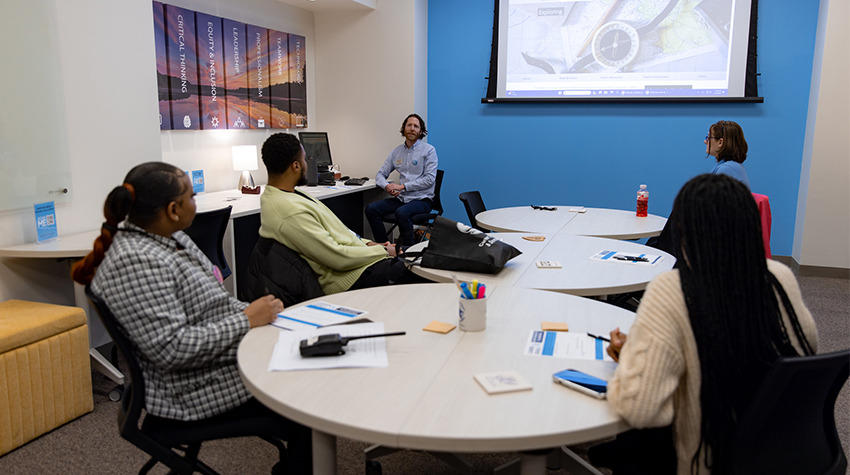
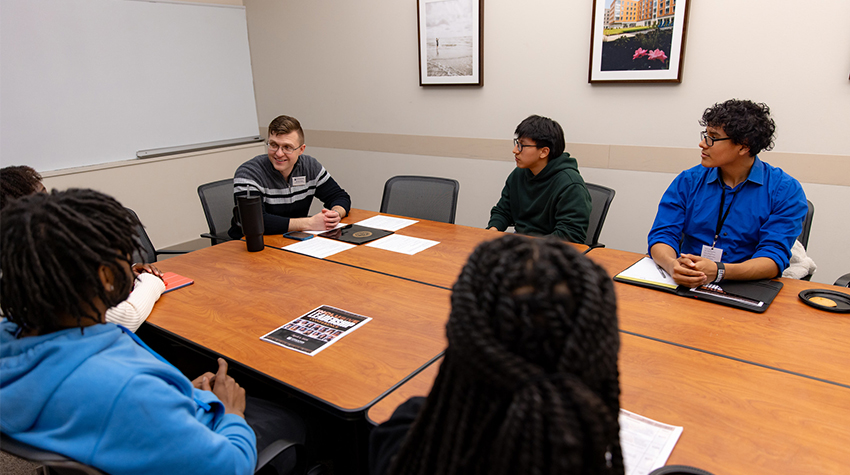
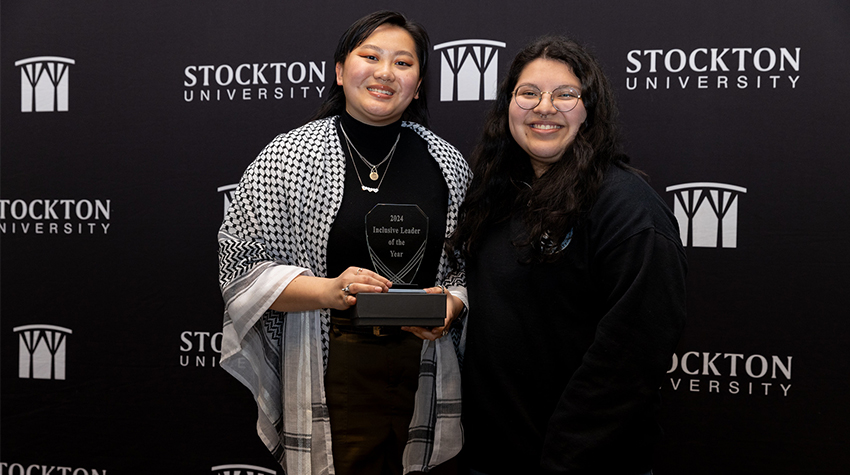
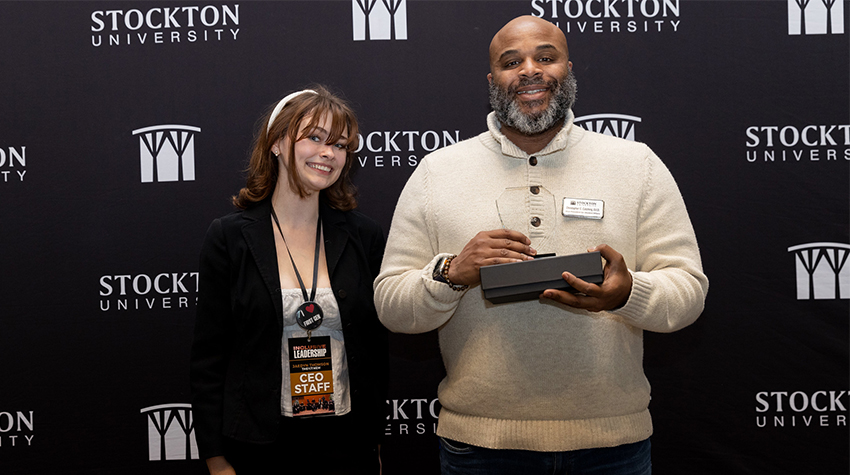
Visual Arts major Christyna ŌĆ£ChrissyŌĆØ Howard attended the conference last year and was glad to see how much the program has grown since last year. She felt that Dr. AllisonŌĆÖs experience was relatable and appreciated the advice.
ŌĆ£(One lesson I learned was) most definitely fighting for what's right, but still having time to have fun,ŌĆØ Howard said. That happens all the time, even with an activism project that I'm working on now in one of my classes. IŌĆÖve been doing so much stuff for this, and people are like, ŌĆśHey, you want to go out?ŌĆÖ I think it's very important to have a work and life, or social project and life balance.ŌĆØ
Rutgers University ŌĆō Camden 91╩ėŲĄ Robert Bayard from Pennsauken and Topher Nabacan from Collingswood both praised the conference overall but specifically highlighted the panel discussion when asked about their experiences.
ŌĆ£The conference has been incredible, and, actually, it's kind of a coincidence because I'm currently writing my second research paper on D&I policies. I learned a lot from the three doctors on the panel,ŌĆØ Bayard said. ŌĆ£The conference, in general, just has been incredible. The band, Young Picassos, was incredible. ItŌĆÖs so organized, and everybody's been so nice. It's very informative, and I appreciated the experience.ŌĆØ
ŌĆ£Yeah, I agree with Rob that this is kind of a unique and serendipitous time for this to be happening because I'm at a time where I have to lock in and refocus myself,ŌĆØ Nabacan said, referencing the conferenceŌĆÖs keynote speaker, Ismail Amir of iAM Legend, LLC. ŌĆ£I also thought it was really beautiful that there was a Filipina on the panel ŌĆō in a lot of D&I talks, there are Asian people involved, but not ones that are like me. So, I thought that was a really great connection.ŌĆØ

91╩ėŲĄ the Contributor
Loukaia Taylor is a communication specialist in University Relations & Marketing, an alumna of the Communication Studies program and a member of the Campus Committee on Diversity and Inclusive Excellence.
On-Campus Conference Expands, Full of Opportunities
April 9, 2024
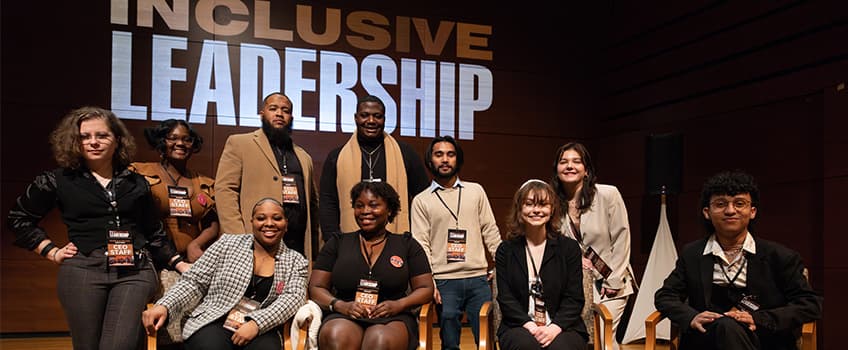
Galloway, N.J. ŌĆō ŌĆ£You see, the reality is that for as long as I can remember, I believed and thought that I was born to lose.ŌĆØ
As the keynote speaker for the April 5 Inclusive Leadership Conference walked across the stage, 91╩ėŲĄ in the Campus Center Theatre gazed at the man and the photo of his family projected on the screen behind him. The man ŌĆō Ismail Amir ŌĆō talked about how he was orphaned at age 11 and how the tragedies he experienced made him take life as it came and strive only for the family behind him.
However, Amir knew that his purpose included more, and he founded , where he conducts workshops and trainings that encourage 91╩ėŲĄ to take life by the reins and become active participants in their life journeys. According to Amir, taking control of his life meant first taking control of his mind.
He compared his mind to a bucket of water and negative thoughts to drops of black food coloring. Even a drop of the dye ŌĆ£corruptedŌĆØ the bucket, turning translucent water into a murky brown ŌĆō demonstrating the impact of negative thoughts.
ŌĆ£I never in a million years would have imagined or dreamed that I would have the opportunity to be a CEO or to run my own business,ŌĆØ Amir said, picking up a full pitcher of water. ŌĆ£You see, what has to happen in our lives in order for us to become CEOs is we have to find a way to begin to wash out these negative thoughts.ŌĆØ
As he poured the entire pitcher into the bucket, 91╩ėŲĄ were shocked to see how much water it took for the bucket to become translucent again. He encouraged 91╩ėŲĄ to consider ways to flush out negativity in their thoughts and reach their fullest potential.
Other Related Articles

